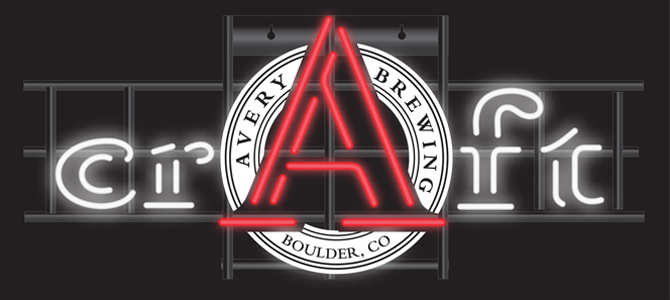
Colorado’s Avery Brewing today announced the sale of a 30 percent stake to Mahou San Miguel, a Spanish brewing company founded in Madrid in 1890.
Specific terms of the deal, which is expected to close in January 2018, were not disclosed.
Avery marks the second U.S. investment for Mahou, which acquired a 30 percent stake in Michigan’s Founders Brewing Company in late 2014.
Speaking to Brewbound, Avery Brewing founder Adam Avery said the company began searching for a financial partner about three years ago, shortly after the company opened a new, $27 million brewery.
“We had a lot of interest from big beer companies and private equity, but we had no intention of selling any part of our business at that time,” he said.
Nevertheless, Avery and his father, Larry, who collectively own the majority of the company, worked up a set of qualities that any investor would need to possess, should the company consider selling a stake.
Avery’s Investor Criteria

Adam Avery said he was only looking to sell a minority stake to a “privately held and family-owned entity” that was interested in a long-term investment. He also wanted a partner that brought “strategic advantages” and employed “good people with shared values.”
“Mahou San Miguel emphatically checked all of those boxes for us and is our ideal partner for continued growth, remaining faithful to our beers and our culture,” he said via a press release.
In his interview with Brewbound, Avery stressed that, despite taking on a significant amount of debt to expand into a spacious 96,000 sq. ft. Boulder brewing facility, a sale wasn’t necessary to continue thriving in an increasingly more crowded and competitive craft environment.
“We didn’t ‘have’ to do this,” he said. “It was an unbelievable opportunity. Mahou came to us nine months ago, and we spent several months figuring out what kind of partnership would make sense. And my dad and I were ready to accept the opportunity.”
A sale price was not disclosed. Avery said the “vast majority” of Mahou’s investment would be put back into the business.
“There is a huge debt reduction, a bunch of cash to the balance sheet and quite a large sum of money going to employees,” he said, noting that longtime employees would be receiving an “appreciation bonus.”
“We definitely wanted to put some money into some people’s pockets, so they could have one hell of a Christmas,” he added.
The release also noted that Mahou’s investment would help support Avery’s continued growth and innovation initiatives, as well as the company’s efforts to strengthen distributor and retailer relationships.

One potential downside: after selling a 30 percent stake, Avery will no longer be considered a “craft brewer” by industry trade group the Brewers Association, which stipulates that no more than 25 percent of a company can be “owned or controlled by an alcohol industry member that is not itself a craft brewer.”
When asked how he felt about no longer being considered a “craft brewer” by an organization that is located just 6 miles away from his brewery, Avery responded succinctly:
“I don’t care,” he said, noting that private equity’s “infiltration” into the craft industry should be more of a concern than large beer company acquisitions.
“It is so funny how ‘big beer’ is demonized,” he said. “The only way private equity makes money is by selling the business to someone else. Guess who will be the highest bidder in four or five years? Probably big beer. As far as the BA’s definition of what ‘craft’ is, I couldn’t disagree more.”
Eduardo Petrossi, the CEO of Mahou San Miguel, echoed that sentiment in the press release.
“This new alliance, between two family companies, has been possible thanks to the passion we share for beer and tradition, and that we have similar values,” he said. “We share the commitment with the communities in which we are present, our long-term vision, concern for the development and well-being of individuals and our aim of doing things right, placing the consumer always at the centre of our decisions.”

Mahou’s US strategy begins to unfold
Mahou’s investments into both Founders and Avery are strikingly similar: Both companies are 20-plus years old and sold 30 percent stakes; both breweries embarked on sizeable, multi-million dollar expansion projects prior to their transactions; and both source significant volumes from lower alcohol flagship offerings — All Day IPA for Founders and White Rascal for Avery — while producing more adventurous beers as part of their respective barrel-aging programs.
Avery said he couldn’t speak to Mahou’s specific U.S. investment strategy, but noted that the company was interested in opportunities to grow sales of sour and barrel-aged beers.
“That is something that they see as being fairly unique within our industry, especially at the volume we are set up to do,” he said.
Avery Brewing’s new Boulder facility, which opened in February 2015, will eventually be capable of producing as much as 500,000 barrels. The company expects to produce about 75,000 barrels this year, following a year of 26 percent growth.
Although Founders produced about 120,000 more barrels of beer the year it was sold, it too is setup for a significant production growth at its Grand Rapids brewing facility. Founders will push out about 450,000 barrels of beer in 2017, but its brewery will eventually capable of producing upwards of 1 million barrels annually.
First Beverage Group, which has worked with a number of craft breweries that sold to strategic buyers and private equity firms in recent years, acted as the exclusive financial advisor to Avery.
